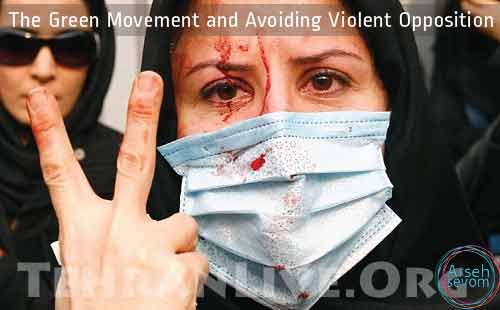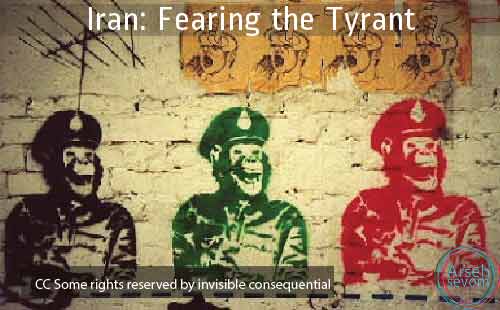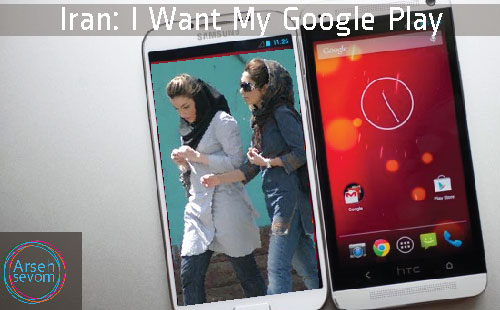
The Green Movement and Avoiding Violent Opposition
August 28, 2013
Iran — Fearing the Tyrant Not the Change
September 3, 2013Arseh Sevom — Budget shortfalls have wreaked havoc on the state of Iran’s healthcare, which is facing more than one billion euros of debt. Since sanctions were loosened on personal electronics, Iranians can now buy iPhones and Androids. Social Media is not just for opposition anymore as Iran’s politicians find their way on to Facebook and Twitter. Membership in the World Trade Association (WTO) is still a distant dream for Iran as is freedom for the leaders of Iran’s Green Movement. Somehow, however, Iran has found a way to fulfill the dream of a base on Antarctica.
by Peyman Majidzadeh
Major Budget Deficit Threatens Iranian Patients
Arseh Sevom has covered the situation of Iranian patients in previous reports. Patients are dealing with poor conditions. Observers hope that the new minister can provide them with better facilities to ease their situation. One of the main healthcare problems in Iran is funding from the national budget. Sanctions have made the situation worse, yet there is a need for more funding in addition to more effective policy enforcement to resolve the healthcare crisis.
According to Radio Zamaneh [fa], a high-ranked official in the Ministry of Health, Abbas Hassani, stated that the ministry faces a 6000-billion Tomans (approx. 1.4 billion Euros) budget deficit — a significant amount. However, he also stated that the ministry’s budget has increased by 10 percent and showed hope for future improvements.
Google and Apple Loosen Up on Iran
Iranian technology enthusiasts have long suffered from e-sanctions. International giants such as Google and Apple closed a considerable number of their services to Iranian users, leaving them in dark in the current technology-based world. In one case, an Iranian-American was prevented from buying an Apple product, justified by sanction acts against Iran.
However, good news was released this week. On Tuesday 27 August, Apple announced that the company has taken Iran off its sanction list – which now includes Cuba, North Korea, Sudan, and Syria. As a result, Iranian customers can buy Apple products and take them into Iran without any legal limitations. In a similar report on 26 August, Google announced that its developers can make their free apps available in Iran. The new option is currently available only for free apps. The comments under the report show that Iranian users are completely happy with the decision. Although these are only primary steps in the way of lifting sanctions against Iran, they mean a lot to Iranian people who desire access to the most recent technological developments.
Iran: Long Way to WTO Membership
The world is becoming more and more interrelated and every country is seeking its share of the global economy. For nearly two decades that Iran has been trying to become a member of WTO, the biggest international economic organization with 159 permanent members. However, Iran’s application was not considered until May 2001 primarily as a result of US objections and the US veto power in the WTO Council. In May 2005, Iran’s application was approved and examined by WTO General Council and Iran became an observer member. According to Deutsche Welle [fa], the new Minister of Industry, Mine, and Trade, Mohammad Reza Ne’matzadeh, referred to membership in WTO as one of his main priorities. Earlier this week, ISNA [fa] reported that Iran is the biggest economy among WTO observer members.
The last country that became a WTO member was Iran’s neighbor Azerbaijan. Membership in the WTO is a big step forward for Iran’s economy. However, international sanctions, especially after 2011, have consistently acted as a barrier to this goal.
Civil Society Supports an End to Sanctions
Last week I reported on a letter signed by more than 50 Iranian political prisoners asking Barak Obama to end sanctions on Iran. The letter spurred varied reactions among observers (see Lobelog [en] and Rahe Sabz [fa]). A group of Iranian political and human rights activists, academics, and students wrote a letter to support the political prisoners. They argued that the sanctions are unfair and that Iranian people are the main victims of tensions between Washington and Tehran. They also claimed that the prisoners represent a large proportion of Iran’s democratic movement. The end result is a petition on change.org, waiting to be signed by those who want to take part (virtually) in solidarity with the campaign to eliminate economic sanctions.
And by the way, it is the 50th anniversary of Martin Luther King’s “I Have a Dream” speech. He was a great man. He had a nice dream. Now, some need to rethink about the concept of American Dream, to turn it from a dream into a reality.
Aref Demands Freedom of Mousavi and Karroubi
About three months ago, former Vice President Mohmmad Reza Aref dropped out of presidential race in favor of Hassan Rouhani. He spent most of that time in silence. On Wednesday 28 August, he broke his silence during a meeting with members of reformist front. He spoke about the possibility of freedom for the Green Movement’s leaders Zahra Rahnavard, Mir-Hossein Mousavi, and Mehdi Karroubi, speaking of his hopes of “a wise decision of President Rouhani,” ISNA [fa] reported. Rouhani did not appoint Aref to any position in his government, despite the expectations of the public. Let’s see how respectful of Aref’s opinions he is in the days to come.
Iranian Politicians: Social Network Celebrities
Social networks have found their way to the political scene in recent years. Iran’s Green Movement benefited from Facebook and Twitter, and social media helped demonstrators in Arab countries to organize their protests. In a nod to the influence of social networks, Iranian politicians have started logging on to gain more popularity and perhaps a direct line of communication with people. Vice President Eshaq Jahangiri has created his Facebook page and amassed more than 7500 fans already.
More interestingly, Minister of Foreign Affairs Javad Zarif has attracted more than 90,000 Facebook fans in about one month; a number that is increasing every day. Zarif’s page is relatively active and he is becoming a celebrity among Iranian netizens. That fact shows the high hopes people have for Javad Zarif’s ability to improve the country’s relations with the international community. Ironically, Facebook is still blocked in Iran.
Iran Goes to the South Pole!
It might seem a bit over ambitious, but it is official news: Lieutenant Commander of the Iranian Navy Rear Admiral Gholam Reza Khadem Biqam announced that Iran is planning to set up a permanent base in Antarctica, Fars News Agency [en] reported. He stated that Iran has already started research to become familiar with the maritime culture of the region.
In November 2012, Deputy Science Minister Mohammad Mehdi Nejad-Nouri announced on inclusion of South Pole in Iran’s five-year maritime research.





